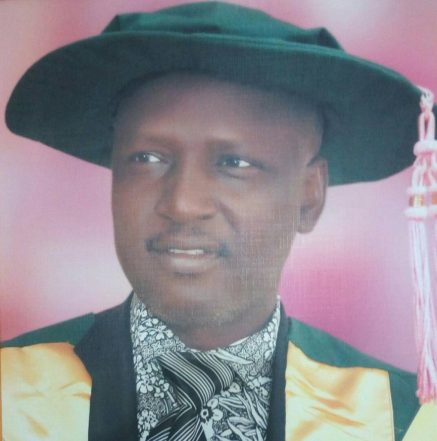
We Can Now Treat Epilepsy With A Herbal Drug – Prof. Chindo
–
By: Luka Binniyat
KADUNA – It is now possible to treat epilepsy and schizophrenia (madness) using a herbal drug discovered by a Nigerian Scholar of Pharmacology and Toxicology of Kaduna state University (KASU), Prof. Ben Chindo.
The breakthrough research and development of the herbal drug was made known during the 2nd Professorial Inaugural Lecture of KASU, delivered by Chindo at the Lecture Theatre of Faculty of Science, KASU, Kaduna yesterday.
Chindo is the Dean of Pharmaceutical studies of KASU.
Speaking on the topic: “Herbal Medicine: Panacea or Agents of Mass Destruction,” Chindo said, “we have studied on a considerable number of medicinal plants that revealed Central Nervous Systems (CNS) activities including: Ficus platyphylla , Newboldia leavis , Hibiscus sabdariffa,” he told the audience
Other medicinal plants he had studied were: Pavetta crassipes, Neorautanenia mitis, Nauclea laltifolia, Balanites aegyptiaca and Randia nilotica among others.
According to him, of much interest to him was a herbal plant that had been used in the management of Central Nervous Systems disorders traditionally in some parts of Northern Nigeria for ages: He named the plant as the “Gamji” plant in Hausa whose botanical name is Ficus platyphylla.
“Ficus platyphylla Del.-Holl (Family: Moraceae) is a deciduous plant that is found mainly in the savanna regions of the West African coast,” he said.
He went on: “It is used in folk medicine to manage epilepsy, depression, insomnia, psychoses, pain, inflammation and gastrointestinal disorders
working on his research on the plant’s healing agents, assisted by some scientist overseas, he said ,“we evaluated the CNS activity of the methanol extract to provide scientific evidence supporting the use of this herbal medicine for the management of psychiatric and neurological disorders.”
The professor who spoke in esoteric scientific terms, said that the active ingredients of the Gamji plant were identified, isolated and clinical trials carried out on rodents with similar CNS disorders like humans..
He said that result showed that epilepsy and madness can be well treated and cured when the drug is effectively administered over a period of time.
The don who carried out his research in Germany, New Zealand and the United state also went into Stem Cells research
He said: “I had a one year post-doctoral training at the Otago School of Medical Sciences, University of Otago, New Zealand.
“Furthermore, I was on a one year sabbatical leave at the University of the Pacific, Stockton, California, USA,
“In these two foreign visits, I actively participated in designing, conducting and analyzing electrophysiological properties of neurons derived from Stem cells for drug development
“I have provided scientific evidence for the efficacy and safety of a number of herbal medicines that are used in folk medicine.
“I gained tremendous insight into cell culture and electrophysiological techniques
“ I would like to pursue in the future, the use of these modern molecular techniques to explore the properties of herbal medicines and their applications for the treatment of diseases.
“I will seek for functional collaborations with laboratories that utilized these modern techniques, with the goal of developing novel therapies from herbal medicines for management of disorders and diseases,” he said.
“This is gold mine which China has tapped into, and we have already finished research on many other herbal drugs, but they there picking dust on library shelves,” he said.
Asked if he was applying for a patent for the production of the epilepsy curing drug, he said, “it is an area I am looking into, though I have published parts of my work. But I have not published much of the work, so the possibility of procuring a patent is still there,” he said.
The Professor praised the Vice Chancelllor of KASU, Prof. Mohammed Tanko for hosting the inaugural lecture and encouraging research and scholarship in the university.
In attendance was the Vice Chancellor of KASU, Prof. Mohammed Tanko, who, before the lecture, praised the research works of Chindo and hailed him for the inaugural lecture, while encouraging others to emulate him.
Also in attendance was the traditional ruler of Ikulu land, Agwam Akulu, Mr. Yohanna Sidi Kukah.
The lecture was also attended by broad range of academics, students, and the general public.






